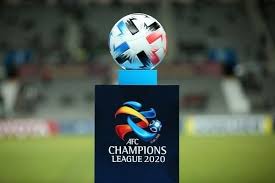November 6 – The international players’ union FIFPro, battling to build a significant presence from a low base in Asia, has accused the Asian Football Confederation (AFC) of a “lack of consultation” over the decision to complete the eastern zone of its elite club competition in Qatar due to the Covid-19 pandemic.
It is a strong claim from the players’ union that has a base of players it represents in Australia but has failed to make inroads into other AFC member associations despite an MoU signed with the AFC in April.
The FIFPro complaint is even more unusual considering the success of the West Zone Champions League matches that were centralised in Qatar and the widespread praise for the player safety and medical procedures around that tournament.
The AFC was the first of football’s confederations to suspend their seasons in March to protect the health of players and fans, and limit spread of the virus. That suspension included the Asian Champions League. The west zone matches resumed at centralised and bio-secure venues in Qatar in September with Persepolis qualifying for the final that will be played in Qatar on December 19.
While the West zone completed their Champions League schedule the AFC consulted with East zone member associations and clubs, looking for potential centralised hosts to continue their half of the competition. None stepped up with offers to host.
“The AFC has been in constant communication with all our Participating Clubs and Member Associations from both the AFC Champions League West and East regions, many of whom have been providing updates to the AFC on a daily basis, since the very beginning of this COVID-19 outbreak,” said an AFC statement.
East zone matches will feature clubs from Australia, China, Japan, Malaysia, South Korea and Thailand. No country stepped up to host with the AFC then turning to Qatar to save its highest profile club competition. All clubs agreed to participate, though it appears they did so without speaking to the players’ union.
The west zone in Qatar matches were not without incident with a number of players testing positive for the virus. The bulk of cases were related to Saudi giants Al Hilal who had brought the virus with them and were excluded from of the competition after 30 players and staff tested positive, leaving them unable to name the minimum 13-player match-day squad.
The AFC emphasised at the time there had been no transmission of Covid-19 between two competing teams.
FIFPro said it was “disappointed and concerned” by the latest move because players had complained about the risks of travelling and about quarantine periods.
“FIFPRO is disappointed and concerned by the lack of consultation of professional footballers in the scheduling of the AFC Champions League in Qatar and the planning of Covid-19 protocols,” a statement said.
“These matters have implications for their mental and physical health as well as their participation in domestic leagues.”
Certainly there will be some impact on Australia’s league, which follows the European season rather than the calendar year. Melbourne Victory, Perth Glory and Sydney FC are all involved in group play. Australian players will all have to do two weeks quarantine when they return. Japan will also face a scheduling crunch with Tokyo FC’s Levain Cup Final having been postponed this week, though the Japanese FA have indicated that there are calendar solutions to complete the season.
“The players whose health, financial situation and careers are on the line deserve to be part of these decisions,” said FIFPro.
“The safety of everyone involved remains the AFC’s highest priority and to achieve this, the AFC introduced a Special Rules Applicable to AFC Competitions During the COVID-19 Pandemic – which highlights the best practices during this ‘new normal’ while outlining all the health and safety regulations at competitions,” said an AFC statement.
“In addition, the organisation of the AFC Champions League (West) has given us a blueprint to follow and similarly in the AFC Champions League (East), we will ensure that all players and officials will be tested before and upon their arrival in Qatar and we will also extend these tests to be conducted every three to six days throughout the duration of the tournament.
“This will further complement the bio-secure bubble in place, which controls and limits the movement of players, teams and match officials to minimise any possible risks and to ensure the safety and wellbeing of all stakeholders.”
The real-world reality is that for most of the clubs and players in the AFC Champions League, their financial situation and careers would likely be in greater danger if FIFPro had their way and the East Zone competition was not played. The health risk in Qatar has already been proved controllable. The question is really whether the politics of FIFPro pose a greater risk to the health of the game in the region.
Contact the writer of this story at moc.l1735233293labto1735233293ofdlr1735233293owedi1735233293sni@n1735233293osloh1735233293cin.l1735233293uap1735233293 or moc.l1735233293labto1735233293ofdlr1735233293owedi1735233293sni@w1735233293ahsra1735233293w.wer1735233293dna1735233293


